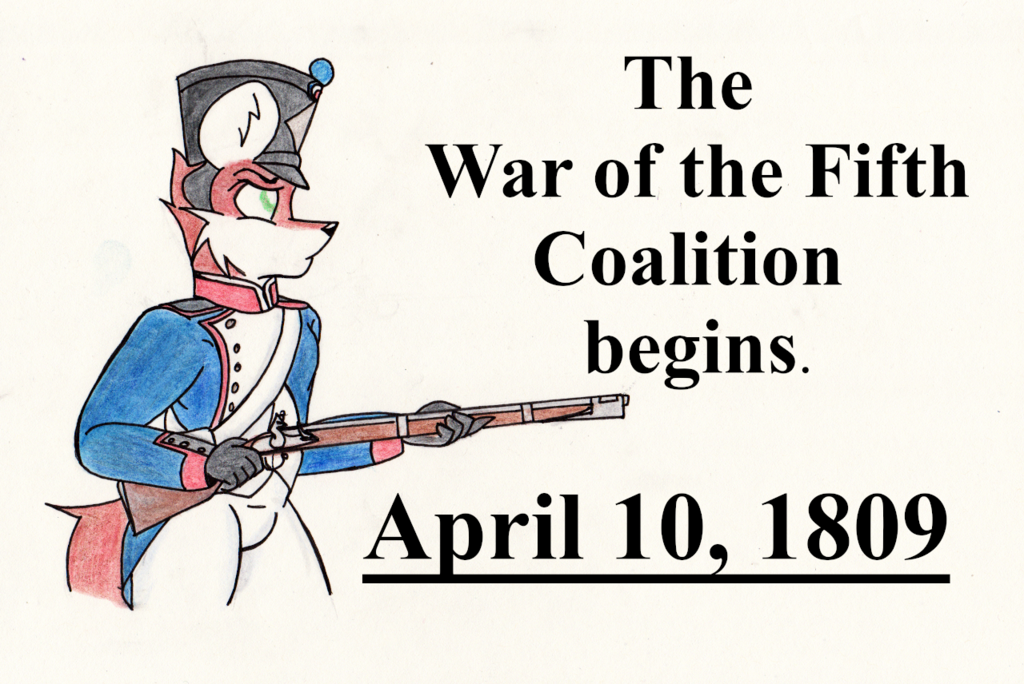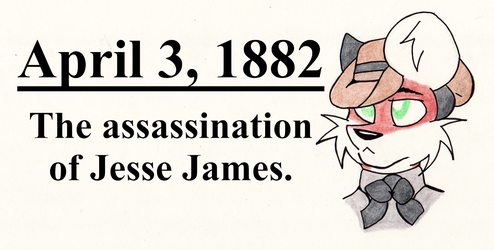Sign In
CloseOn April 10, 1809, Austrian forces crossed into French-controlled Bavaria, beginning the War of the Fifth Coalition. Part of the Napoleonic Wars, the War of the Fifth Coalition saw the Austrian Empire joined by the United Kingdom fighting against Napoleon's French Empire and its allies in Italy, Poland, and Dalmatia. The bulk of the fighting occurred in Bavaria where the Austrians initially saw success, having taken the French by surprise by launching there assault earlier than the French had anticipated. However, Napoleon rushed to the scene to take over command and remedy the mistakes and losses his officers had made and to drive the Austrians back across the Isar river. Unfortunately for the French, Napoleon had underestimated the strength of the Austrian force that had managed to cross the river, having thought only one corps had crossed when five corps had actually made it across under the command of Austria's Archduke Charles. Despite outnumbered and suffering heavy casualties, the French soon pushed the Austrians back out of Bavaria. Meanwhile, Austrian campaigns in Poland, Italy, and Dalmatia also failed. In a bid to relieve the pressure on Austria, Britain launched the Walcheren Campaign with an invasion of Holland while also fighting the Peninsular War against the French in Spain and Portugal. High casualties due to disease eventually led the British to end their campaign in Holland. Furthermore, a rebellion and French authority in Tyrol also failed. Though Austria did see success in taking Saxony through a combined force of Austrians and Brunswickers, Austria was forced to agree to an armistice by mid-July. The Brunswicker, led by the Duke of Brunswick, successfully fought their way to Britain and entered into British service rather than abide by French authority.
The War of the Fifth Coalition finally came to an official end on October 14, 1809, with the signing of the Treaty of Schönbrunn. Austria was force to cede large portions of its territory, losing ~20% of its population to France and its allies (including Bavaria, Poland, and Russia). Austria and its emperor, Francis, were forced to pay France 85 million francs, recognize Napoleon's brother Joseph as King of Spain, and exclude Britain from trade. Napoleon would also eventually marry Marie Louise, the daughter of Francis. However, the rebellions in the German states highlighted growing discontent among the Germans towards French rule and nurtured German nationalism. Furthermore, France's martial superiority was starting to crack, especially as Napoleon's skilled and experienced veterans were lost in combat and were replaced with inexperienced recruits and conscripts and a growing dependence on non-French contingents.
Submission Information
- Views:
- 236
- Comments:
- 0
- Favorites:
- 2
- Rating:
- General
- Category:
- Visual / Traditional




